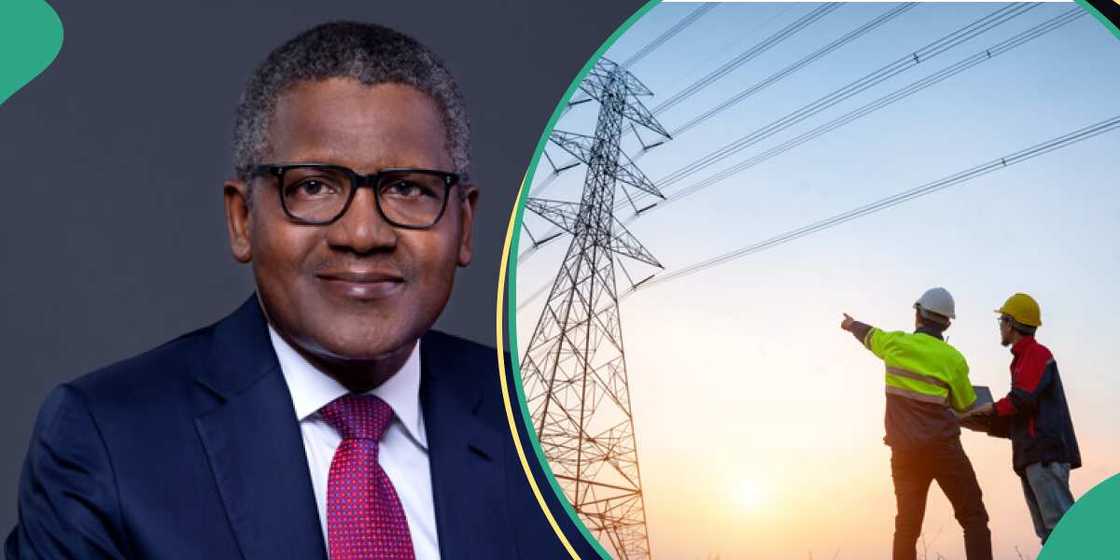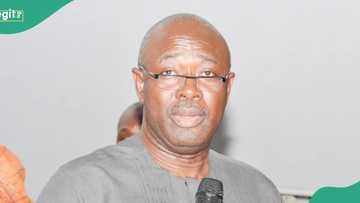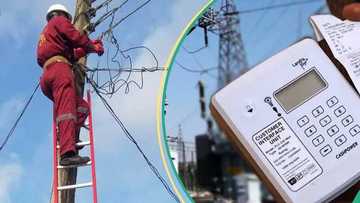Dangote, Others Generate More Electricity Than Nigerian Government as They Dump DisCos
- Over 250 companies and academic institutions have ditched the national grid to generate their electricity
- The total amount of electricity generated by the firms and institutions is about 6,500MW, higher than Nigeria’s consumption
- The Dangote Group generates the highest electricity with 1,500MW, while other companies and institutes generate 5,000MW
Legit.ng’s Pascal Oparada has reported on tech, energy, stocks, investment and the economy for over a decade.
As Nigeria battles constant power outages, about 250 manufacturers and the academia have ditched their power distribution companies to generate more electricity than the Nigerian government.
Companies that are primarily bulk electricity users have abandoned the national grid to generate constant power for their operations.

Source: UGC
FG grants permit for captive power generation.
The development comes amid the high cost of electricity, fuel price hikes, and continuous grid collapses.
Reports say in 2021, ex-president Olusegun Obasanjo abandoned the national grid and unveiled a two-megawatt solar power project at the Olusegun Presidential Library in Ogun State.

Read also
Nigerian Breweries, others secure permit to generate own electricity amid national grid collapses
Obasanjo described the then N2 billion project as a cost-effective investment.
Captive power generation is higher than Nigeria’s consumption
Checks from the Nigerian Electricity Regulatory Commission (NERC) reveal that the companies have generated a combined 6,500MW of electricity.
The power generated by the organisations is higher than Nigeria’s 4,500MW.
Further investigation reveals that the companies and academic institutions received approvals from NERC to generate captive power, with some licenses issued over the last decade.
Punch reports that requests for captive power generation have risen since 2023 after President Bola Tinubu signed the Electricity Act into law.
Captive power generation licenses are given to entities intending to own and maintain power plants exclusively for their consumption, meaning those entities are not allowed to sell electricity generated from the plants to a third-party user.
The Dangote Group leads in captive power generation
Many plants use renewable energy, while others embrace gas to power their plants.

Read also
Nigeria's oil production rises to new high amid NNPC $8bn crude swap deal, minister explains
The Dangote Group remains the biggest captive power generator with 1,500MW of electricity.
The Dangote Refinery alone has about 435MW of power, which is equal to that of Ibadan DisCo.
In 2024, the Chairman of the Dangote Group, Aliko Dangote, said at Afreximbank Annual Meetings and AfriCaribbean Trade and Investment that the group produces about 1,500MW for self-consumption.
Other firms with captive power permits
Data from NERC shows that 249 companies and institutions were given licences to generate captive power.
The amount of power generated by the organisations amounts to 5,180MW.
The 1,500MW of Dangote power brings captive power generation to 6,500MW.
The electricity regulator revealed that Pure Flour Mills Limited in Rivers received a license to generate 564MW while Nigeria LNG generates 360MW.
Others with captive power permits include Lafarge Africa with 105MW, Total E&P Nigeria Limited with 174MW, Esso Exploration & Production Limited with a captive power license to generate 76MW, First Global Commerce Solutions with 77M, Flour Mills of Nigeria with 70MW, and Lafarge Cement Wapco Nigeria with 90MW.
Other companies include MTN Nigeria, NNPC, Shell, Nigerian Breweries, Mobile Producing Unlimited, Kaduna Refinery, Procter and Gamble Nigeria, Bank of Industry, and others.
Academic institutions
Universities in Nigeria with captive power permits include the University of Lagos, ABU Zaria, the Federal University Nfufu-Alike, Usman Danfodio University, OAU, the Federal University of Petroleum Resources, and others.
Kano DisCo to disconnect from the national grid
Experts say that the organisations' abandonment of the national grid could collapse the sector as they are heavy consumers and pay the highest amount for electricity generation.
The development comes as Kano Electricity Distribution Company (KEDCO) has finalised plans for a partnership for an initial $100 million investment to develop a 100MW Safe Grid for Kano, Katsina, and Jigawa states, offering 24-hour electricity to customers in the states.
The grid will serve industries, commercial centres, and key government infrastructure and eliminate the need to rely on the national grid.

Read also
Reactions as Aba Disco hikes electricity tariff by 100%, upgrades customers to higher bands
FG orders disconnection of 3 major DisCos
Legit.ng earlier reported that the Nigerian government directed that three major DisCos be disconnected from the national grid.
The directive came in a notice issued by the marketing arm of the Transmission Company of Nigeria (TCN).
the DisCos are said to have failed to renew their security cover and are allegedly owing the TCN energy service debt to the tune of N231 billion.
PAY ATTENTION: Сheck out news that is picked exactly for YOU ➡️ find the “Recommended for you” block on the home page and enjoy!
Source: Legit.ng



